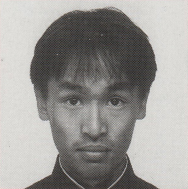Takeyuki Ogura
From Sega Retro

|
| Takeyuki Ogura |
|---|
| Employment history: Sega Enterprises (1994-04-01[1] – 2000-01)
Divisions:
CSK Research Institute (2000-02 – 2000-09[2])
Divisions:
DeNA (2012-04[2] – )
Paracosma (2018-09[2] – )
|
| Role(s): Programmer |
| Education: Waseda University[1] |
This teeny-tiny article needs some work. You can help us by expanding it.
Takeyuki Ogura (小倉 豪放) is a Japanese software engineer who has worked in the computer entertainment industry since joining Sega in 1994. He was often credited as Goho Ogura while working at Sega. He has worked for several companies including Microsoft and DeNA and is on the planning committee for CEDEC.
Career
After graduating from Waseda University, Takeyuki Ogura joined Sega Enterprises and was assigned to AM R&D Dept. #2 as a visual effects programmer, debuting with Virtua Fighter 2. He programmed the outside objects for both the Model 2 and [[Saturn versions of Virtua Cop 2 and helped with the realtime morphing character effects in Sonic the Fighters. He became the chief 3D library & effect programmer for the Shenmue series, with rendering effects done for Virtua Fighter 4 in-between entries.
Around the same time AM2 of CRI was rebranded as the full-fledged company Sega-AM2, Ogura left Sega to work for Microsoft Game Studios, first on Blinx: The Time Sweeper with other former Sega staff at Artoon. He continued to provide technical support to on Xbox exclusives Ninety-Nine Nights, Blue Dragon and "Undiscovery"[2], which is possibly related to Infinite Undiscovery.
Ogura went freelance in 2007 as a software engineer and directed the PC game OE CAKE!. He briefly became the Prometech Software in 2008, working on the iPhone game Aqua Forest, but spun off his own company Phyzios by the end of the year. At Phyzios, he collaborated with NHK Educational developed and directed an iPad iteration of Daikagaku Jikken[3]
In 2011 Ogura once again went freelance, as both a software engineer and consultant, working with a "major Japanese automotive maker" to survey technologies and development pipelines of new automatic cluster panels. He joined his longest-lasting corporate partnership in 2012, becoming a software engineer for DeNA, launching VR live streaming at their subsidiary Showroom[4]. Less than a year later he also joined CEDEC's engineering working group, and 2 years later in 2015 joined their business working group.
In 2018, Ogura became CTO of Paracosma. In 2021 he became a technical advisor for AVR Japan, but left less than a year later[2].
Production history
Games
- (; 1994) — Scroll (as Goho Ogura)
- (; 1995) — Programmers (as Goho Ogura)
- (; 1996) — Special Thanks (as Goho Ogura)
- (; 1996) — Programmers[5] (as Goho Ogura)
- (; 1999) — Chief 3D Library & Effect Programmer
- (; 2001) — Chief Programer
- (; 2001) — Rendering Effect (as Goho Ogura)
- (; 2001) — Chief 3D Library & Effect Programmer
- (; 2004) — Scroll (as Goho Ogura)
Videos
- (; 1995) — Scroll (as Goho Ogura)
- (; 1995) — Scroll (as Goho Ogura)
References
- ↑ 1.0 1.1 Harmony, "1994 4" (JP; 1994-04-01), page 11
- ↑ 2.00 2.01 2.02 2.03 2.04 2.05 2.06 2.07 2.08 2.09 2.10 2.11 2.12 2.13 2.14 2.15 2.16 https://www.linkedin.com/in/takeyuki-ogura/details/experience/
- ↑ http://arigato-ipod.com/2011/07/daikagaku-jikken.html (Wayback Machine: 2011-07-09 20:25)
- ↑ https://cedil.cesa.or.jp/cedil_sessions/view/1712 (Wayback Machine: 2021-04-14 21:11)
- ↑ File:VirtuaC2 Saturn JP SSOpening.pdf